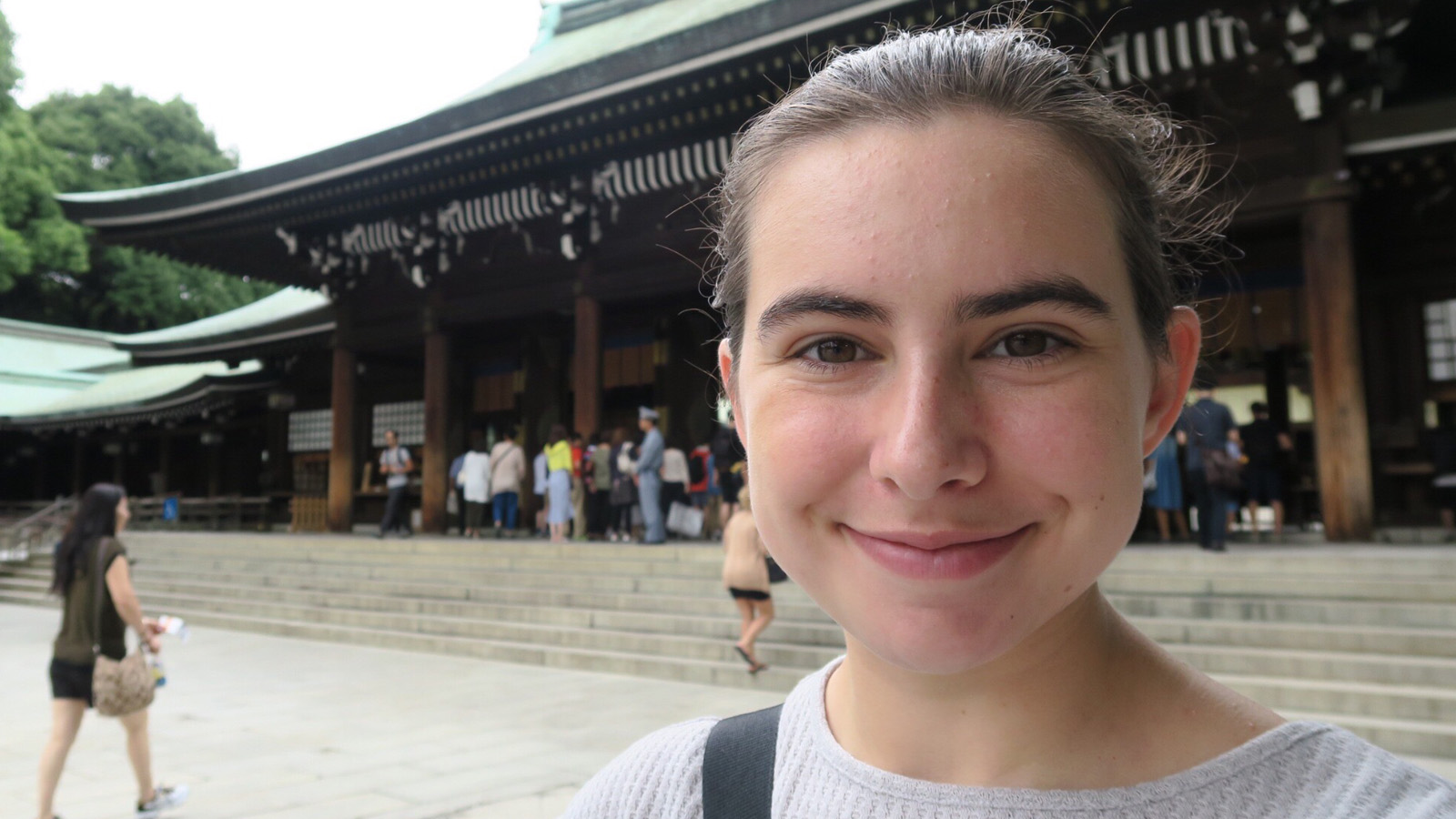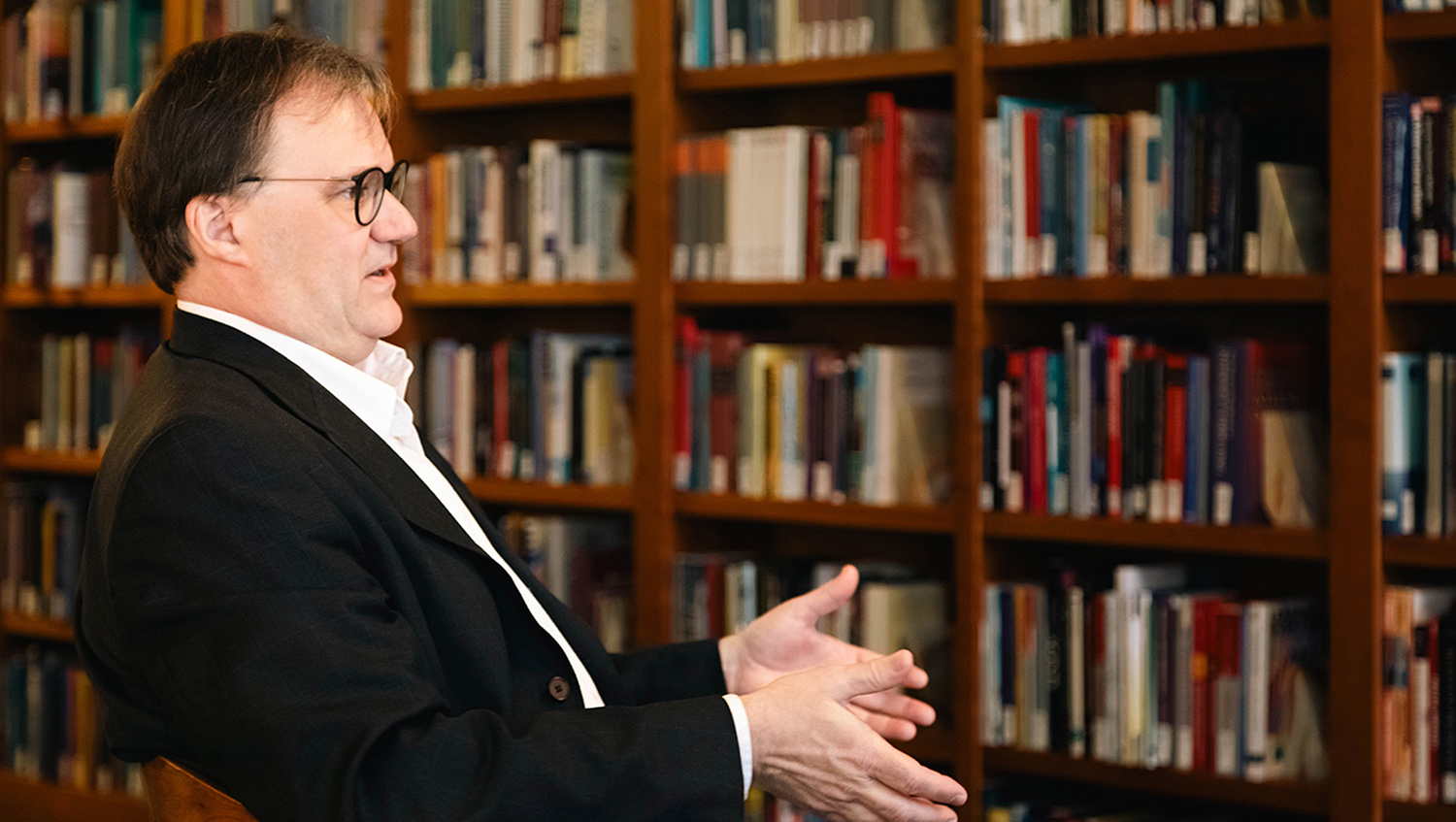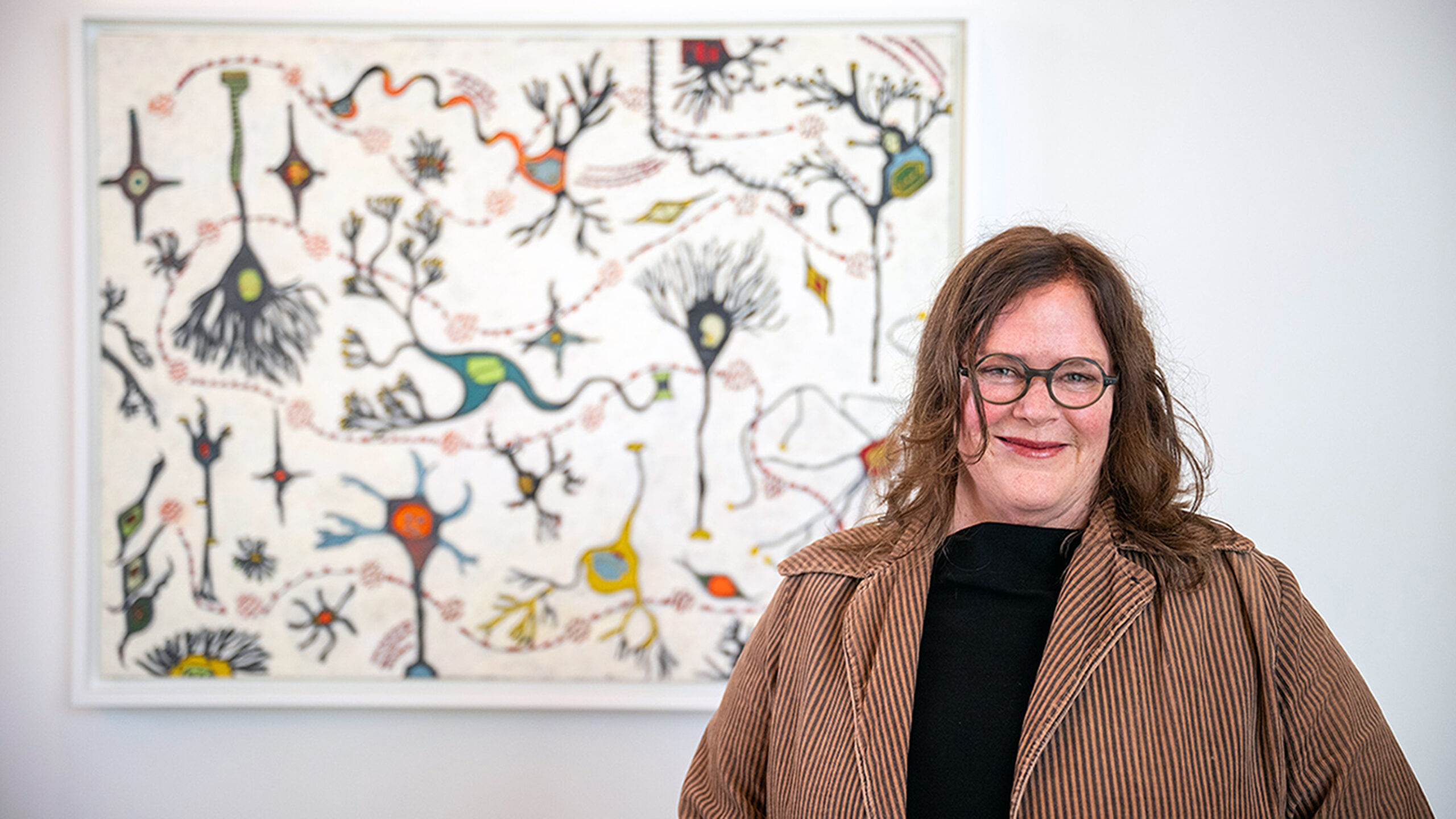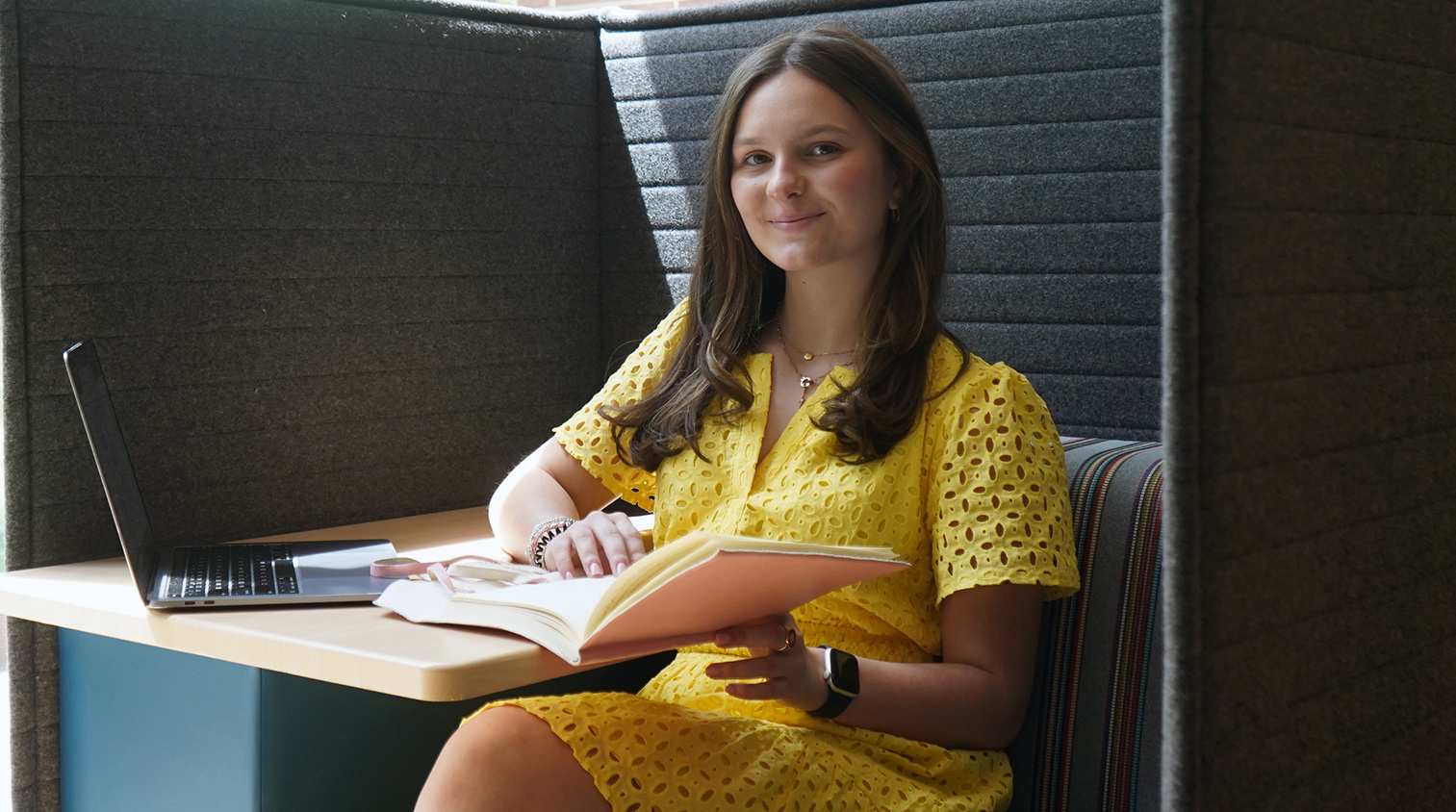Dean’s Scholars Dream Big with Donor Support

When she was younger, Alyssa Vincent took the occasional theater class outside of school. Her favorite acting coach spoke Japanese.
Now a sophomore at NC State, Vincent remembers being captivated by the foreign language. Her interest led her to take a few Japanese classes in high school on the way to graduating near the top of class. She enrolled in another after being admitted to NC State and changed her major from English to Asian language.
Vincent started to realize her initial curiosity was evolving into something more. “I began to see myself working in Japan in the near future,” she said.
With support from College of Humanities and Social Sciences donors, Vincent now gets to sample a prospective career overseas. As part of a year-long study abroad experience, Vincent has an opportunity to expand her understanding of Japanese language and culture at Sophia University in Tokyo. She departed for the country in the fall and will live with a host family during her stay.
Vincent’s trip is supported by the Humanities and Social Sciences Dean’s Scholar Award, a merit-based scholarship funded by private gifts to the college. The $4,000 awards are for top incoming freshmen, who use half the money to offset freshman-year tuition and the other half for a hands-on learning experience such as study abroad, an internship or research.
Since its inception in 2012, the Dean’s Scholar Award program has helped recruit and support dozens of top high school seniors to NC State. The award, handed out annually, is funded by private donations to the Humanities and Social Sciences Excellence Fund.
Vincent, who received her Dean’s Scholar Award in 2015, said the scholarship directly contributed to her decision to enroll at NC State.
“I worked hard in high school for top grades, and this award felt like validation for putting in the extra effort,” Vincent said.
Eligible candidates for the Dean’s Scholar Award must be accepted into a Humanities and Social Sciences major and demonstrate excellence in the classroom. Invitees often have a math and critical reading SAT score of at least 1300, a weighted GPA of at least 4.4 and a class rank in the top 10-12 percent.
A Deep-seated Commitment
Gifts from donors such as Dr. Linda Silber are helping ensure the longevity of the Dean’s Scholar Award program and other merit-based scholarships.
A child of the John F. Kennedy era, Silber said she was inspired at an early age to “ask not what your country can do for you: ask what you can do for your country.” It’s what led her to a career in mental health and to advocate for improving system access to all populations.
Silber opened the state’s first group psychology practice solely devoted to children and adolescents after earning her doctoral degree in psychology at NC State. During a career that spanned 40 years as a child psychologist at Raleigh’s Silber Psychological Services, she worked to remove barriers to mental health treatment, including lobbying insurance companies for greater coverage of services. The American Psychological Association recognized her work in 1999 with the Karl Heiser Presidential Award for Advocacy.
In retirement, Silber has expanded her deeply-held belief in giving back to encompass the humanities. Through a recent bequest to the college, she is supporting freshman merit-based scholarships that will help NC State attract top Humanities and Social Sciences students.
Silber hopes her gift will help students graduate with less debt. A native of Kentucky, Silber grew up in poverty and was a first-generation college student. Even with a small scholarship, she had to work close to 40 hours a week to graduate from her undergraduate program debt free.
“I don’t think that’s possible today,” Silber said. “That’s why scholarships like these are so important, especially in the humanities. If you come out of college with $100,000 or more in debt and you’re planning to be a physician or financial wizard, you can probably recoup that money quickly. But that’s not likely the case if you graduate with a degree in the humanities and are pursuing a field that you’re passionate about but are making less money.”
Silber holds that the sciences are critical, that technology “is what helped us advance to where we are today.” But without the human component, where does that leave us?
“It’s so vital to understand our relationships and figure out how we fit in and communicate with our families and society as a whole,” Silber said. “I have been fortunate to travel abroad and find myself drawn to the great artists in many fields as well as locations of human events both glamorous and sobering that moved me.
“I am struck that in spite of cultural and language barriers, we are able to transcend and find our human connections and similar aspirations.”
- Categories:


